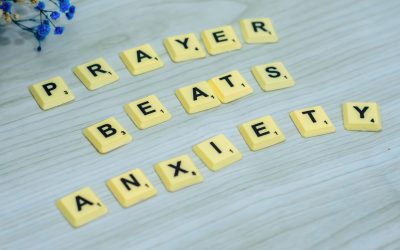A Guide to Reclaiming Your Life
You are not alone if you or someone you know is struggling with addiction. Addiction can take many forms, from substance abuse to compulsive behaviors, and it can have a devastating impact on your life and the lives of those around you. However, recovery is possible, and there are steps you can take to overcome addiction and live a healthy, fulfilling life.

The first step in overcoming addiction is to acknowledge that you have a problem. This can be difficult, as addiction often comes with feelings of shame, guilt, and denial. However, admitting that you need help is the first step towards recovery. Once you have acknowledged your addiction, you can explore your options for treatment and support.
Recovery from addiction is not quick or easy, but it is possible with the right resources and support. In this article, we will explore some of the steps you can take to overcome addiction and build a healthy, sustainable lifestyle. Whether you are struggling with addiction or supporting someone who is, we hope this article will provide you with the information and inspiration you need to take the first steps toward recovery.
Understanding Addiction

Defining Addiction
Addiction is a chronic disease that affects the brain and behavior. It is characterized by compulsive drug seeking and use despite the harmful consequences. Addiction is a complex brain disease that manifests as an obsessive need to use drugs or engage in certain behaviors despite the adverse effects.
Causes of Addiction
A combination of genetic, environmental, and behavioral factors causes addiction. Genetics can play a role in addiction, as some people may be more predisposed to addiction due to their genes. Environmental factors like stress, trauma, or drug exposure can also contribute to addiction. Behavioral factors, such as a lack of social support or poor coping skills, can also increase the risk of addiction.
It’s important to understand that addiction is not a moral failing or a lack of willpower. It is a disease that requires medical treatment and support. If you or someone you know is struggling with addiction, it’s essential to seek professional help.
The Impact of Addiction

Addiction can profoundly impact your life, affecting you physically, psychologically, and socially. Here are some of the consequences you may experience:
Physical Consequences
Addiction can cause a range of physical health problems, including:
- Damage to your liver, heart, and other organs
- Increased risk of cancer, heart disease, and other chronic conditions
- Decreased immune system function
- Nutritional deficiencies
Psychological Effects
Addiction can also have significant psychological effects, including:
- Depression, anxiety, and other mood disorders
- Memory and cognitive problems
- Impaired judgment and decision-making abilities
- Increased risk of suicide
Social Implications
Addiction can also impact your relationships, work, and other aspects of your social life, including:
- Strained relationships with family and friends
- Difficulty maintaining employment or achieving career goals
- Legal problems, such as arrests or fines
- Financial difficulties due to spending on drugs or alcohol
It’s important to remember that addiction is a complex disease that affects individuals differently. If you or someone you know is struggling with addiction, seeking professional help can be a crucial step towards recovery and a healthier lifestyle.
Steps Towards Recovery

If you or someone you know is struggling with addiction, taking the necessary steps towards recovery is essential. Here are some steps to overcome addiction and live a healthy lifestyle.
Acceptance and Commitment
The first step towards recovery is to accept that you have a problem and commit to changing. This can be a difficult step, but it’s crucial to acknowledge the issue and take responsibility for your actions. Once you’ve accepted your addiction, you can begin to focus on the steps needed to overcome it.
Seeking Professional Help
Addiction is a complex disease that often requires professional help to overcome. Seeking help from a qualified therapist or counselor can give you the support and guidance you need to overcome addiction. They can help you identify the underlying causes of your addiction and develop a recovery plan.
Detoxification and Rehabilitation
Detoxification is the process of removing harmful substances from your body. This can be a difficult and uncomfortable process, but it’s an important step towards recovery. Once you’ve completed detoxification, rehabilitation can help you learn new coping skills and behaviors to overcome addiction. Rehabilitation can take many forms, including inpatient treatment, outpatient treatment, and support groups.
Remember, recovery is a journey, not a destination. Overcoming addiction and living a healthy lifestyle takes time, effort, and commitment. But with the right support and resources, you can take the necessary steps towards recovery and achieve a better life.
Maintaining a Healthy Lifestyle

To achieve long-term recovery and maintain a healthy lifestyle, it is important to focus on physical fitness, mental health care, and social connections.
Physical Fitness and Nutrition
Regular exercise and a healthy diet are essential for maintaining physical health and reducing the risk of relapse. Exercise releases endorphins, which can help improve mood and reduce stress. It can also help enhance the quality of sleep, which is essential for overall health and well-being. A balanced diet with plenty of fruits, vegetables, lean proteins, and whole grains can help provide the body with the nutrients it needs to function correctly and reduce cravings for unhealthy foods.
Mental Health Care
Mental health care is also an essential component of maintaining a healthy lifestyle. This can include therapy, support groups, and medication management. Addressing any underlying mental health issues contributing to addiction or making it more difficult to maintain recovery is necessary.
Social Connections
Social connections can provide a sense of belonging and support, which is essential for maintaining recovery. Surrounding yourself with positive influences and avoiding people or situations that may trigger cravings or lead to relapse is vital. Joining support groups or engaging in activities promoting social interaction can help build supportive relationships.
Remember, maintaining a healthy lifestyle takes time and effort, but it is worth it in the long run. Focusing on physical fitness, mental health care, and social connections can improve your overall well-being and reduce the risk of relapse.
Preventing Relapse

Addiction recovery is a lifelong journey, and preventing relapse is crucial to maintaining sobriety. Here are some strategies to help you stay on track:
Recognizing Triggers
Triggers are events, situations, or people that can cause a craving for drugs or alcohol. By identifying your triggers, you can avoid them or develop coping strategies to deal with them. Common triggers include stress, boredom, social situations, and negative emotions.
Coping Strategies
Developing healthy coping strategies is essential to preventing relapse. Here are some strategies to consider:
- Exercise regularly to reduce stress and improve mood
- Practice mindfulness meditation to manage cravings and negative emotions
- Seek support from friends, family, or a support group
- Engage in hobbies or activities that bring you joy and fulfillment
- Avoid people, places, and situations that trigger cravings
Continued Support
Maintaining a support system is crucial to preventing relapse. Here are some ways to continue receiving support:
- Attend support group meetings regularly
- Stay in touch with your sponsor or mentor
- Consider therapy or counseling to address underlying issues
- Surround yourself with positive, supportive people
- Stay accountable by periodically checking in with someone you trust
Remember, relapse is not a failure. A setback can be overcome with the right mindset and support. Stay committed to your recovery, and never hesitate to seek help.
Conclusion

In conclusion, overcoming addiction is a challenging but achievable goal. It requires commitment, support, and lifestyle changes to achieve long-term recovery. Remember that recovery is a journey, not a destination, and it is important to celebrate small victories along the way.
By following the steps outlined in this article, you can take control of your life and live a healthy, fulfilling life free from addiction. Remember to be patient and kind to yourself and to seek support from loved ones and professionals when needed. You can overcome addiction and achieve lasting recovery with the right mindset and tools.




